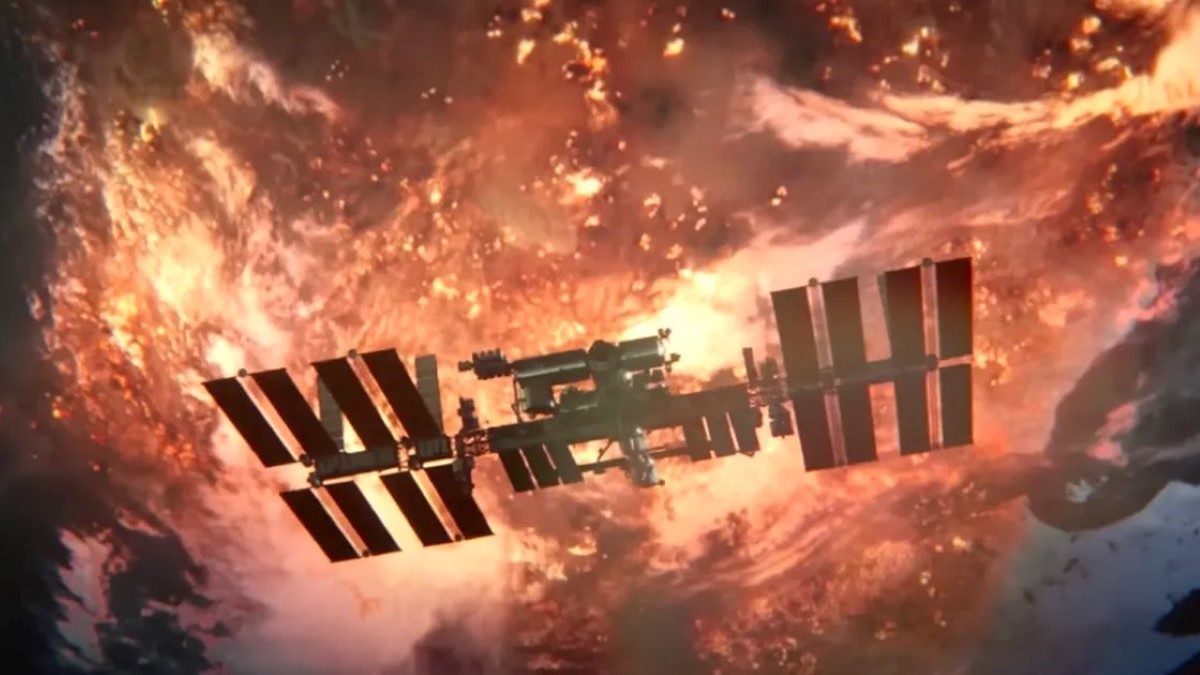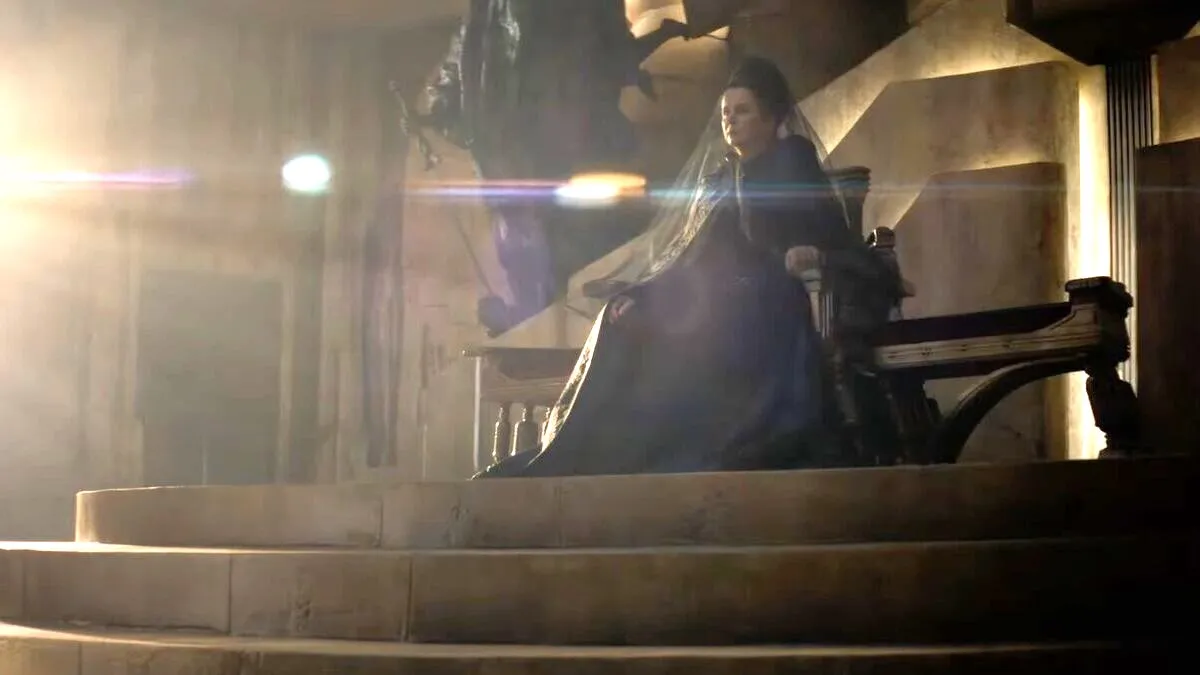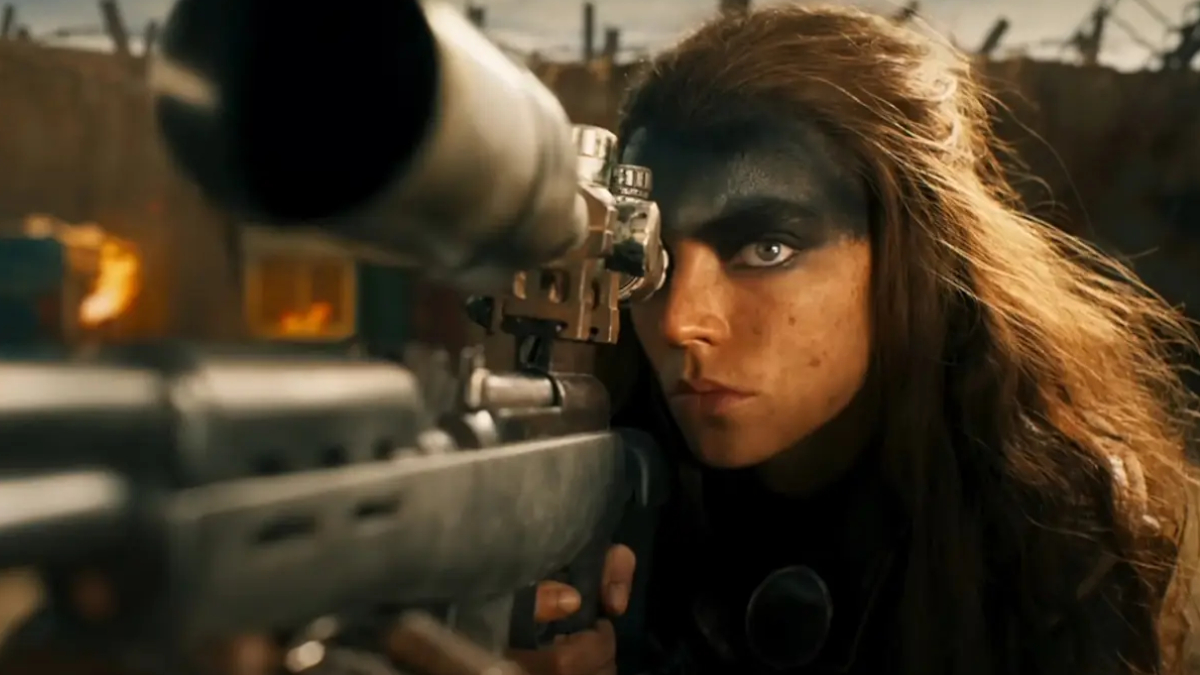At a glance, it would be easy to write I.S.S. off as just another trope-heavy sci-fi thriller; a crew stranded together in space? Tensions rising? Bodies dropping one by one? All pretty par for the course, right?
It’s all the more impressive, then, that by just twisting a few tiny narrative knobs on a road well-traveled, I.S.S. scribe Nick Shafir has managed to elevate what would otherwise be a cop-out movie idea into something miles more captivating, all held together by Gabriela Cowperthwaite’s masterful direction and an Ariana DeBose-led cast that pulls their weight at every turn — never mind the fact that they’re in zero-gravity.
The premise of Shafir’s script centers around three American astronauts (Kira, Gordon, and Christian, played by DeBose, Chris Messina, and John Gallagher Jr., respectively) and three Russian cosmonauts (Weronika, Nicholai, and Alexey, portrayed by Maria Mashkova, Costa Ronin, and Pilou Asbæk, respectively) who all work together in genial harmony aboard the International Space Station, but are suddenly pitted against one another when nuclear war breaks out between the two countries down on Earth, and each crew receives orders to take control of the I.S.S. by any means necessary.
Perhaps not since Alien has a writer and director duo been so harmonious in crafting sci-fi tension as compelling, clever, and intelligent as Shafir and Cowperthwaite have with I.S.S., and they split this tremendous credit almost entirely evenly. Indeed, the disarming revelations, twists, and deeply uncomfortable subtext dreamt up by Shafir are brought to spine-chilling life by Cowperthwaite’s unique ability to layer claustrophobia, life-threatening trust issues, and the already frantic nature of the I.S.S. as a workspace into a mouth-watering kebab of cinematic anxiety.
To that point, Cowperthwaite’s direction does deserve an extra-special nod for its ability to somehow strengthen each story beat with a subtle touch, rather than a more pronounced one. That’s not to say that I.S.S. doesn’t take full advantage of Anne Nikitin’s gorgeously disturbing soundtrack whenever it can, but there’s something about the under-dramatized strokes dotting the plot that — when combined with the decision to use a fair bit of security camera footage throughout the movie — make I.S.S. stand out by being more accommodating of our capacity for disbelief than other films would be; a trait we likely have the director’s documentary background to thank. A gamble? Perhaps, but let’s not forget that gambles are the seeds to great art, and Cowperthwaite is one hell of a botanist.
Speaking of standouts, it’s hard to pick one from the sea of great character work at play here; Ronin’s portrayal of the matter-of-factly murderous Nicholai crackles just as well as the triumphantly gentle Kira that DeBose flexes her range on. But at the end of the day, it’s impossible not to single out Gallagher Jr.’s performance as Christian, whose steady descent into destructive paranoia is utterly fascinating to observe. It helps that his scenes had the most kinetic connective tissue for the tension, sure, but Gallagher Jr. absolutely ran with every chance he was given, and that’s worthy of a shoutout.
It’s towards the end of the 95-minute runtime that I.S.S. begins to buckle a bit under its weight; earlier on, the film sets up some excellent thematic meat as the six spacegoers gaze upon a pre-devastated Earth, marveling at their ability to really look at their home planet without any observable borders, and while that does tee up a political musing or two to chew on, that theme doesn’t quite end up clicking in any truly compelling way, which is especially disappointing given what appeared to be an intriguing promise at the outset.
It’s also hard to say whether Shafir wrote himself into a corner or if Cowperthwaite just had to make some tough calls, but the dialogue suffered greatly as I.S.S. began to wind down. Perhaps it wouldn’t have been as noticeable had the majority of the film’s dialogue not been so expertly crafted and delivered with all the meaningful intention and natural playfulness (when appropriate) you could ever ask for, but the events of the film eventually led us to a point where more than one character resorts to saying their revelations out loud when no one else is in the room; it’s arguably a necessary evil given that the I.S.S. and it’s many bells, whistles, and screens could hide many an unfamiliar visual cue for the average moviegoer, but the resulting dissonance was just a teensy bit too jarring to forgive.
As for the ending itself, without veering too deeply into spoiler territory, potential viewers will probably be happy to know that I.S.S. doesn’t wrap itself up in a neat and tidy bow, which is strangely indicative of both its strengths and its limits at the same time. On the one hand, a story like this could probably never be cleanly resolved, for lack of a better word; that’s especially refreshing in today’s landscape, and Shafir is owed a tip of the hat for sticking with an uncertain ending, even if a more certain ending would have probably required more effort on his part, ironically enough.
On the other hand, however, the ending itself doesn’t quite boast a punchy enough payoff to be notably satisfying, which is made more disappointing when one considers how swell of a job Shafir did in the setup phase of the plot. Had I.S.S. made the decision to really burrow into its themes more than it did, the ending would probably have been much better, but in no way should that imply that its decision to be a pressure cooker to the nervous system was an incorrect one; all creative decisions come with creative sacrifices, and I.S.S. quite commendably played to the strengths of everyone involved.
All in all, I.S.S. works far, far better than any film of its kind usually has any right to, and it all comes down to utilizing that tight runtime in tandem with a writer, director, and cast who all understand the assignment inside and out; namely, to leave nary a single unraised hair on the back of anyone’s neck. Its shaky setup-payoff ability and a handful of rather dire technical slipups prevent it from really ascending beyond the Milky Way, but I.S.S. saw many roads ahead of it and chose what was undoubtedly the best one for it, and the confident, even surprising way that in managed to walk that road makes for some heartily worthwhile viewing for sci-fi junkies and thrill-seekers alike.







